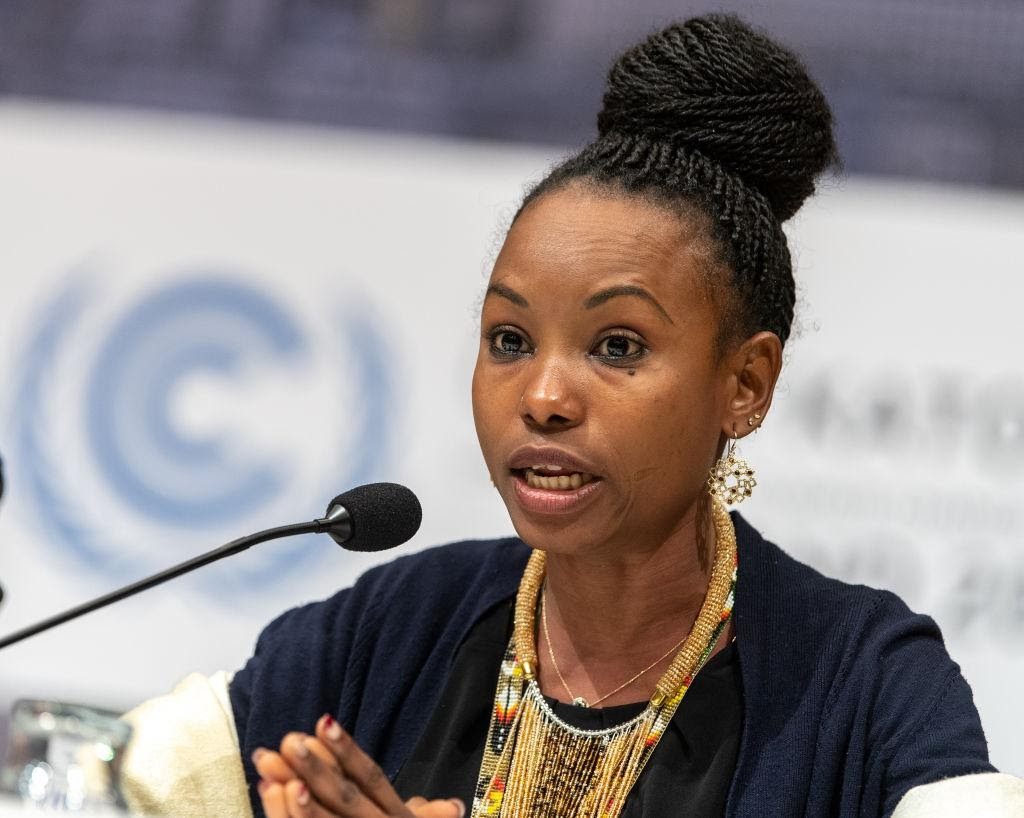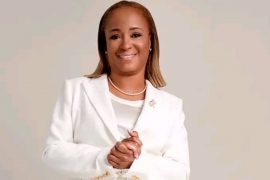“We are connected to nature, we find our resources in nature, we protect it; nature is completely intertwined with our culture and way of life.”
Those were the wise words of a West African woman environmentalist who is fighting for the survival of her people in a little place in Chad. Born in Chad in 1984, Hindou Oumarou Ibrahim spent her formative years between N’Djamena the capital city of Chad where she studied, and her holidays with her community, the indigenous Mbororo people, who are traditionally nomadic farmers.
During her undergraduate days Ibrahim was discriminated against as an indigenous woman, she was also aware of the ways in which her Mbororo counterparts were excluded from the educational opportunities she received. Having borne the pain of discrimination, she founded the Association of Indigenous Peul Women and Peoples of Chad (AFPAT) in 1999, to help promote the rights of girls and women in the Mbororo community and inspire leadership and advocacy in environmental protection.
This was not the last of her inspirational impact towards raising awareness among world leaders about the rights of indigenous people and climate change. Because she was convinced of the importance of the existence of her people, and also because no nation, tribe or people deserves to be treated less or in disdain, Ibrahim has always been ready to go the extra mile for her people.
As such, she once said “If we don’t take action against climate change, it’ll be my people who will disappear, and disappearing with them will be not just their culture, but also their precious knowledge of the environment.”
Ibrahim is the third child in a family of five brothers and sisters. Although the Mbororo culture did not give full consent to the education of a girl child, Ibrahim’s parents allowed her and her sisters to attend school in Chad’s capital.
Having witnessed how the life of her community is threatened by climate change, she mobilized her own people, and challenged them to raise awareness among her village’s elderly chiefs of the value of women’s advice, and to think together about how to adapt to adversity.
The Mbororo people are an ethnic subgroup of 250,000 members of the Fulani, the largest nomadic people in the world, inhabitants of central and western Africa. They survive from small-scale farming and cattle-raising in the arid Sahel area, in the southern part of the Sahara Desert.
According to Ibrahim, the Mbororo people, practice large-scale transhumance (the seasonal herding of livestock to fresh grazing grounds) in the Sahel region every year following the rhythm of the season. In doing so, they along with their herds, contribute to looking after the ecosystem, fertilising the soil and thereby protecting biodiversity. But for the past 10 years, maybe longer, the environment has been rapidly changing. In the community, the older generations no longer recognise the seasons. They are confronted by intense droughts, heatwaves, and then, all of a sudden, by floods. This is climate change and its social, economic and cultural consequences are hitting the community hard. 20 years ago, their cows produced milk twice a day during the dry season. Today, because of climate change, they can milk them only once every two days.
While international organisations are doing their best to help save lives and preserve communities, from the heat of climate change in many places around the world, there is still a need for the likes of Hindou Oumarou Ibrahim to help facilitate the processes.
In pursuit of curbing climate change, Ibrahim developed an innovative project in Chad that brought together 500 indigenous herders to map natural resources in the region in 2013. The project was divided into two groups, the first group consist of men who documented mountainous areas, rivers and places considered sacred, while the second group consist of women who mapped the springs. The project caught the attention of the national government, which began using the survey to inform public policy and on the other hand this brought Ibrahim’s identity as a thought leader to the spotlight.
“People gradually accepted me as a leader,” says Ibrahim. “I have been changing the way women are seen and treated in our communities.”
Ibrahim is a leader in various leadership capacities and her commitment to advocating for the importance of indigenous knowledge in mitigating the effects of climate change is enormous. She is co-Chair of the International Indigenous Peoples Forum on Climate Change, representing the group at the United Nations Convention to Combat Desertification (UNCCD) and of the Pan-African Alliance Climate Justice (PACJA), where she also acts as the chair of recruitment.
She is also a member of the Policy Board of the United Nations Indigenous Peoples Partnership (UNIPP) and of the Executive Committee for the Indigenous Peoples of Africa Coordinating Committee (IPACC).
Ibrahim was recognized as a National Geographic Society Emerging Explorer in 2017, a program that recognizes and supports outstanding scientists, conservationists, storytellers, and innovators. In that same year, she was featured as one of the BBC’s 100 Women project, recognizing 100 influential and inspiring women every year. In 2018, she was listed as one of BBC’s 100 Women.
Beyond her overarching dedication to fight for climate change and the right of indigenous people and women, is a heart for humanity. The world needs a lot of people like Ibrahim.
Miracle Nwankwo





Comments are closed.